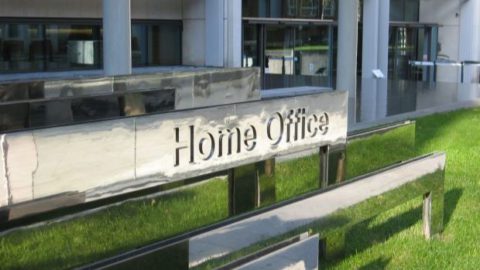Home Office report shows
impact of COVID-19
on immigration
3 June 2020
On 28 May, the Home Office released a new report highlighting the impact the COVID-19 pandemic has had on the immigration system and UK passenger arrivals. Immigration into the UK plummeted in April as countries around the globe enforced lockdown measures and closed their borders in a bid to prevent the virus spreading.
The new statistics expose how visa centre closures and global travel bans have led to a dramatic halt in both the processing of visa applications and passengers arriving into the UK by air, sea and rail.
The Home Office report shows data from March and April 2020 and gives an overview of the key trends affecting the UK immigration system as a result of the outbreak. Here, we take a look at the key findings and statistics.
UK passenger arrivals
The number of passengers arriving into the UK has predictably seen a sharp drop since the start of the COVID-19 pandemic.
In April 2020, there were only around 112,300 passengers arriving into the UK by air, 99% lower than in April 2019. The number of air arrivals has rapidly decreased in the lead up to lockdown in the UK, with January 2020 seeing 7.1 million air arrivals compared to just 3.8 million in March.
Since lockdown measures were announced in the UK on 23 March, the majority of passengers arriving by air have been British nationals returning home, accounting for 58% of all air arrivals.
Entry clearance visas
As a result of visa centres in the UK closing at the end of March, most decision making including interviews were halted during lockdown. Although case work continues to take place, staff absences have impacted the processing of visa applications.
The statistics reflect this, with the number of decisions falling across all types of visa since the start of the pandemic, and plummeting in April during lockdown. Less than 100 decisions were made on visa applications in April 2020, compared with 248,000 in March 2019.
Visa applications have also fallen since March this year across all nationalities, with only around 250 applications recorded in April. Applications from Chinese nationals began to decline at the beginning of the year following the COVID-19 outbreak in China.
In March 2020, there were around 129,000 visa applications in total, less than half the number in March 2019.
Extensions of leave
The number of extensions granted has also fallen since the start of the COVID-19 pandemic, with 77% fewer extensions granted in April 2020 compared to April 2019. The Home Office has explained that the decrease in April was linked to moving the operation from a physical presence in an office to a process that can be delivered remotely.
As well as extensions granted under existing policies, the Home Office also separately recorded the number of extensions granted to those currently unable to return home due to lockdown and travel restrictions. By the end of April 2020, there had been 65,000 COVID-19 related extensions granted.
This number does not include visa extensions for NHS frontline workers, however the Home Office is developing reporting processes to communicate this figure in due course.
EU Settlement Scheme
The COVID-19 pandemic has meant some of the application routes and support services for the EU Settlement Scheme have been suspended. However, EU citizens are still able to apply to the scheme using a laptop or mobile device, and applications continue to be processed during the pandemic.
According to the latest statistics, the Home Office received 67,300 applications to the EU Settlement Scheme in April 2020, 46% lower than the previous month. However, a downward trend in applications to the scheme had already been identified since the UK left the European Union at the end of January.
By the end of April 2020, the EU Settlement Scheme had received over 3.5 million applications. Out of the total applications, 73,000 were concluded in April 2020, a figure 51% lower than the previous month.
Asylum and resettlement
Travel restrictions have drastically impacted asylum seekers’ ability to apply to live in the UK, although applications have continued to be accepted during the pandemic. In the first four weeks of lockdown there were around 300 initial decisions made on asylum applications, around one sixth of the number in the four weeks prior to lockdown.
Resettlement activity is currently suspended due to restrictions on movements both overseas and in the UK. As a result, there have been no refugees resettled in the UK since March 2020.
Questions about immigration during COVID-19?
If you need advice or support in managing the immigration process for yourself or your business, Smith Stone Walters is here to help.
Despite the current challenges, our team remain fully operational and ready to assist with your immigration queries. Contact us today to discuss your requirements.
Share story

